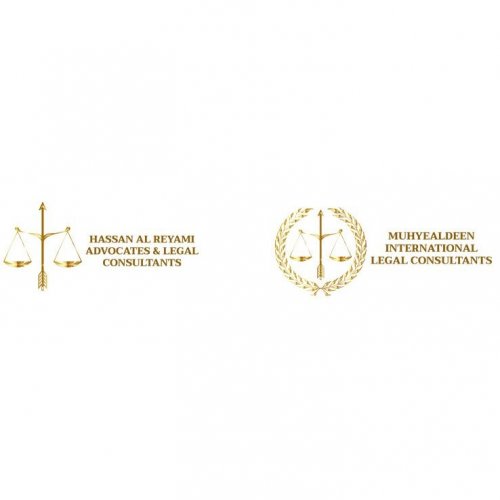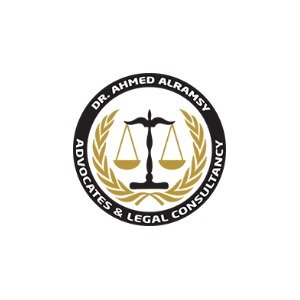Best Project Finance Lawyers in Abu Dhabi
Share your needs with us, get contacted by law firms.
Free. Takes 2 min.
List of the best lawyers in Abu Dhabi, United Arab Emirates

The Black Robe For Legal Consultancy & Debit Collection
1 hour Free ConsultationAbout Project Finance Law in Abu Dhabi, United Arab Emirates
Project finance is a specialized method of funding large-scale infrastructure and industrial projects, where repayment is primarily made from the cash flows generated by the project itself. In Abu Dhabi, project finance has played a central role in the development of sectors such as energy, oil and gas, water, transportation, and real estate. The legal landscape is shaped by a combination of federal laws, Abu Dhabi-specific regulations, and international practices. The structure of project finance typically involves multiple parties, including sponsors, lenders, government authorities, and contractors, all operating within a highly regulated environment.
Why You May Need a Lawyer
Engaging with project finance in Abu Dhabi can be complex due to the scale of the investments, the involvement of multiple stakeholders, and strict regulatory compliance requirements. Common situations where legal help is essential include:
- Drafting and negotiating finance and project agreements
- Managing regulatory approvals and compliance with Abu Dhabi and UAE laws
- Conducting due diligence on company ownership, assets, and legal standing
- Advising on project structures and risk allocation between parties
- Resolving disputes between sponsors, lenders, investors, or authorities
- Navigating cross-border elements, such as foreign investment laws, tax implications, or international lenders
- Handling project defaults or restructuring financings
Qualified legal counsel ensures that all arrangements are enforceable, risks are minimized, and interests are adequately protected throughout the project lifecycle.
Local Laws Overview
Abu Dhabi operates within the federal legal framework of the United Arab Emirates, with certain local regulations. Key aspects relevant to project finance include:
- Foreign Investment Laws: While the UAE has historically had restrictions on foreign ownership, recent reforms allow increased foreign investment, particularly in designated sectors and free zones.
- Public-Private Partnership (PPP) Law: Abu Dhabi's PPP framework allows private sector involvement in public infrastructure and service delivery, governed by Law No. 2 of 2019.
- Security and Collateral: Specific regulations apply to the granting and enforcement of security interests, including pledges over shares or assets and mortgage laws.
- Islamic Finance: Sharia-compliant finance structures are widely used and accepted, particularly in large infrastructure projects.
- Sector-Specific Laws: Additional regulations may apply in energy, utilities, and real estate, such as licensing requirements or land ownership restrictions.
- Dispute Resolution : Disputes may be resolved through Abu Dhabi or UAE courts, or via arbitration, with many contracts specifying international arbitration rules.
Compliance with federal and emirate-level regulations, as well as adherence to best practices regarding financing, structuring, and risk allocation, is crucial for successful project finance transactions in Abu Dhabi.
Frequently Asked Questions
What is project finance, and how is it used in Abu Dhabi?
Project finance is a method of funding where lenders rely on the project's future cash flow as the primary source of repayment, rather than the sponsor's balance sheet. In Abu Dhabi, it is commonly used for energy, water, transportation, and real estate developments.
Who are the main parties involved in a project finance deal?
The main parties include project sponsors (owners or developers), lenders (such as banks or international financial institutions), government bodies, contractors, suppliers, and often, offtakers (entities purchasing the project's output).
Are foreign companies allowed to invest in project finance deals in Abu Dhabi?
Yes, subject to UAE foreign investment regulations. Recent legal changes allow greater foreign participation in certain sectors, and special rules may apply within free zones or for certain PPP projects.
What legal structures are most often used for project finance in Abu Dhabi?
Special Purpose Vehicles (SPVs) are commonly established to own and operate the project. The SPV is a legally independent entity responsible for managing the project's risks and liabilities.
What types of security can lenders take under Abu Dhabi law?
Lenders may take security over fixed and movable assets, shares, receivables, and contracts, subject to registration and perfection requirements under UAE law.
Are Islamic finance structures available for project financing?
Yes, Abu Dhabi is a key hub for Islamic finance, and many projects use Sharia-compliant structures such as Ijara, Murabaha, or Sukuk in addition to conventional lending.
How are disputes commonly resolved in project finance transactions?
Disputes may be resolved through UAE courts, but international arbitration is widely used, especially for large and cross-border projects. Arbitration centers such as the Abu Dhabi Commercial Conciliation and Arbitration Center (ADCCAC) are commonly named in project documents.
What are the most significant risks in project finance deals in Abu Dhabi?
Risks include construction and completion, operational performance, regulatory changes, currency exchange, political or force majeure events, and payment defaults. Proper allocation and mitigation of these risks is a central legal function.
Does the government provide support or guarantees for project finance deals?
The Abu Dhabi government may offer guarantees or other support, particularly for projects deemed strategically important. These may include offtake agreements, subsidies, or guarantees for certain risks.
What is the role of a legal advisor in project finance transactions?
A legal advisor provides guidance on structuring the transaction, preparing and negotiating project, finance, and security documents, ensuring regulatory compliance, conducting due diligence, and navigating dispute resolution if needed.
Additional Resources
If you need more information or specialist guidance, the following resources can be helpful:
- Abu Dhabi Department of Economic Development (DED) - Regulatory information and permits
- Abu Dhabi Investment Office (ADIO) - Foreign investment support and project facilitation
- Abu Dhabi Global Market (ADGM) - International financial center with its own regulations
- Emirates Securities and Commodities Authority (SCA) - Oversight of financial markets and securities
- Abu Dhabi Commercial Conciliation and Arbitration Center (ADCCAC) - Dispute resolution services
- Federation of UAE Chambers of Commerce and Industry - Networking and advocacy
Next Steps
If you are considering entering into a project finance transaction or facing related legal challenges in Abu Dhabi, it is wise to consult with a legal expert experienced in project finance and local regulations. Start by identifying your project's scope, the potential stakeholders, and the specific areas where you will need legal guidance. Prepare all relevant documents, such as business plans, financial models, and identification materials, to ensure your legal advisor can provide tailored support. Finally, reach out to a reputable law firm or specialist in Abu Dhabi or consult governmental agencies for initial guidance or referrals.
Thorough legal advice not only safeguards your interests but also ensures the smooth and efficient delivery of your project within the dynamic regulatory framework of Abu Dhabi, United Arab Emirates.
Lawzana helps you find the best lawyers and law firms in Abu Dhabi through a curated and pre-screened list of qualified legal professionals. Our platform offers rankings and detailed profiles of attorneys and law firms, allowing you to compare based on practice areas, including Project Finance, experience, and client feedback.
Each profile includes a description of the firm's areas of practice, client reviews, team members and partners, year of establishment, spoken languages, office locations, contact information, social media presence, and any published articles or resources. Most firms on our platform speak English and are experienced in both local and international legal matters.
Get a quote from top-rated law firms in Abu Dhabi, United Arab Emirates — quickly, securely, and without unnecessary hassle.
Disclaimer:
The information provided on this page is for general informational purposes only and does not constitute legal advice. While we strive to ensure the accuracy and relevance of the content, legal information may change over time, and interpretations of the law can vary. You should always consult with a qualified legal professional for advice specific to your situation.
We disclaim all liability for actions taken or not taken based on the content of this page. If you believe any information is incorrect or outdated, please contact us, and we will review and update it where appropriate.
















